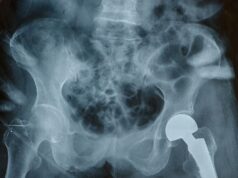Surgeon burnout is a critical issue that affects not only the well-being of orthopaedic surgeons but also the quality of care patients receive. These surgeons face unique challenges, including long hours, physically demanding procedures, and constant high-pressure decision-making. Nearly 40% of orthopaedic surgeons report symptoms of burnout, which can lead to medical errors, strained patient relationships, and decreased surgical quality. The profession’s culture often discourages seeking help, making it even harder to address the problem. To protect both surgeons and their patients, it is essential to focus on systemic changes, cultural shifts, and strategies to support individual resilience.
Why Burnout Hits Surgeons Hard
Orthopaedic surgeons face unique stressors that make them particularly vulnerable to burnout. Long hours in the operating room, physically demanding procedures, and the constant need to maintain focus under pressure contribute significantly. Study findings estimate that approximately 40% of orthopaedic surgeons experience burnout symptoms. A culture of toughness within the profession only worsens the issue, as seeking help is often perceived as a weakness. Beyond the personal toll, burnout can lead to medical errors, strained patient relationships, and a decline in surgical quality. The problem isn’t just about tired surgeons. It’s about a system pushing its workforce to the brink.
The Ripple Effects of Ignoring Burnout
The consequences of burnout extend beyond the surgeon. Patient safety and outcomes are directly at risk when surgeons are overwhelmed or emotionally exhausted. Burnout increases the likelihood of mistakes, from surgical complications to poor communication during follow-ups. Colleagues also bear the brunt, as an overworked and disengaged surgeon affects team dynamics and morale. The cost to healthcare organizations is equally steep, with burnout driving higher turnover rates, decreased productivity, and greater recruitment challenges. In extreme cases, burnout has even been linked to substance abuse and suicide, highlighting the severity of its impact.
What Needs to Change
The solution to burnout isn’t a single quick fix; it requires action on multiple fronts. Healthcare organizations must start by addressing the systemic causes of burnout. Reducing administrative burdens, allowing more flexible scheduling, and ensuring adequate staffing are critical first steps. Surgeons need time and space to focus on their craft without the constant pressure of endless bureaucratic tasks. Providing access to mental health services, such as counseling and peer support groups, is equally vital. Organizations that prioritize these changes report better retention rates, improved morale, and a stronger sense of community among their staff.
On a personal level, building resilience is an essential tool for combating burnout. Programs that teach mindfulness techniques or stress management strategies can equip surgeons with the skills to navigate the emotional toll of their work. Physical health matters as well. Getting enough sleep, exercising regularly, and maintaining a balanced diet can provide a strong foundation for coping with the demands of the job. These individual strategies are not substitutes for organizational change, but they are essential components of a broader wellness framework.
Changing the Culture of Surgery
Cultural change within the surgical profession may be the most difficult but also the most necessary solution. The unwritten rules of surgery often celebrate endurance and self-sacrifice at the expense of mental health. This attitude perpetuates stigma around seeking help, leaving surgeons to struggle in silence. Leadership has a critical role to play in shifting this mindset. When senior surgeons openly discuss their own challenges and demonstrate support for wellness initiatives, it sends a powerful message to the entire team.
Recognition and reward systems can also make a difference. While clinical outcomes are often the primary focus, celebrating contributions like mentoring, teaching, or research can foster a broader sense of achievement. By redefining what success looks like in orthopaedic surgery, the profession can create an environment that values the whole person, not just the surgeon in the operating room.
The Ethical Mandate to Act
The ethical implications of burnout are clear. Healthcare providers have a responsibility to “do no harm,” a principle that extends to their colleagues as well as their patients. When surgeons are burnt out, their ability to provide safe and effective care diminishes, and the ethical obligation to address this becomes unavoidable. Institutions that fail to prioritize workforce well-being are neglecting their duty of care, not only to their employees but also to their patients and communities. Addressing burnout is not just about retention or productivity but about maintaining the trust and integrity of the healthcare system.
A Way Forward
Surgeon burnout cannot be ignored if the medical field hopes to sustain the well-being of its workforce and the quality of care patients deserve. Healthcare organizations need to take bold steps to address the root causes, from reducing workloads to investing in wellness programs. Surgeons must be empowered with tools to build resilience while being supported by a culture that values their humanity. Most importantly, the medical community must embrace the ethical responsibility to protect its workforce, knowing that doing so ensures safer, more compassionate care for everyone.





